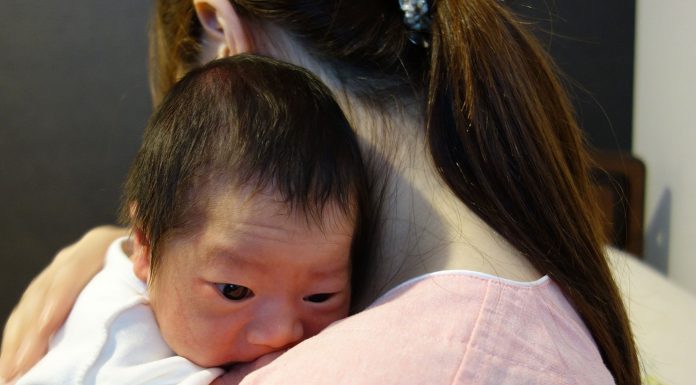Just under 1430 new graduate nurses have their fingers crossed as they wait to find out whether their applications for jobs in the New Year intakes have been successful. This figure is 50 down on applicant numbers at the same time last year for NETP (nursing entry to practice) and NESP (new entry to specialist practice, mental health and addictions) programme places; which is the first time applications have fallen since the current scheme has been in place.*
Hutt Valley District Health Board revealed this week that a lack of vacancies and overspend of its nursing staffing budget in the winter flu season will see Hutt Hospital not go ahead with its traditional February intake of around 20-25 nurses. But director of nursing Helen Pocknall said Hutt still intends to try and employ a similar number of graduates in 2016, but spread across the year as vacancies arise.
Elsewhere in the country Auckland District Health Board is increasing its February intake from 89 last year to 112 this year and Waitemata will be taking 86 including 8 in primary health care and 19 in the mental health NESP programme. Counties-Manukau DHB is planning to increase its mental health intake by two to 17 and also plans to increase its NETP intake over last year. Waikato is taking just under 90 in February and expects over the year to increase its intake to 105 as part of an ongoing trend of increasing its new graduate intakes.
Hutt Valley’s neighbouring board, Capital and Coast DHB, will also be increasing its intake. Andrea McCance, director of nursing for CCDHB said applicant numbers were slightly up from 289 last year to 304 this year and it had interviewed 170 applicants. She said the board has 46 ‘ring-fenced’ positions for new graduates, up on 40 last year, as well as 25 NESP positions and six places for midwifery graduates.
Final year nursing students around the country sit their state finals exam on November 17 and the following day, November 18, find out whether they have been successful in gaining a new graduate place through the ACE system. The Nursing Council is expecting around 1373 students to sit state finals, which is slightly down on last year’s 1380 candidates.
Whether the total number of new graduate jobs available nationwide have also plateaued or risen will be clearer after November 18. Around 85 per cent (1202) of this year’s 1429 ACE applicants are first time applicants with the rest being unsuccessful applicants from July 2015, November 2014 and earlier graduate cohorts.) Around 150 plus students sitting state finals have not applied for jobs through ACE for a variety of reasons that may include having already found jobs in the private sector or overseas.
Pocknall said Hutt Valley DHB had employed directly 25 of the 37 new graduates taken on across the DHB region in 2014 and 24 of the 35 employed last year. She said this February intake the DHB’s provider arm will be employing none but it hoped to have 3-5 positions available in the primary and residential aged care sector. Hutt had interviewed graduates for NESP places but Pocknall said these positions would be absorbed by CCDHB as the region’s mental health services were now working collectively. Wairarapa DHB was taking on eight new graduates in 2016, the same as this year.
She said Hutt’s nursing leaders had worked very hard with new chief executive Dr Ashley Bloomfield to try and offer some graduate places in the current application round. “But unfortunately we find ourselves where we are now. Having said that we are absolutely committed to take graduates as vacancies come up.” She said last week it had only one nursing vacancy across the whole DHB. On top of the lack of vacancies this year’s flu season had resulted in a “very high rate” of casual nurses being employed over the winter leading to the nursing budget being overspent.
Pocknall said it had considered ring-fencing new graduate positions and offering 12 month contracts but the skill mix required in its specialty areas, like plastics and burns, meant they were unable to regularly take a large number of new graduates. But the board was considering in the future asking each directorate, rather than each ward, to reserve a number of vacancies each year for new graduates. She believed that Hutt was not alone and that several other DHBs may be taking a lesser number or very few graduates this New Year.
But the country’s largest DHB employer, Auckland DHB, is for the second year running increasing its intakes. Two years ago it only had 56 places on offer in November (which grew to 79 over the summer), last year it had 89 places on offer and this year this has risen again to 112 (94 NETP and 18 NESP).
Auckland’s chief nursing officer Margaret Dotchin said the DHB had been increasing the number of graduates over the last few years and last year had three rather than the usual two intakes. “We intend to take approximately 200 new graduates in 2016.”
Denise Kivell, director of nursing for Counties Manukau DHB said it continued to be committed to a strategy of growing its own nursing workforce including a focus on Maori and Pacific nurses. She says it now offers new graduates 12 month contracts and around 97 per cent of its new graduates move into permanent jobs in their second year with the DHB.
Sue Hayward, director of nursing at Waikato DHB, said its trend was for year-on-year increases in its NETP intakes. “The aim is to continue this trend into 2017 – incremental growth to meet population and work force design needs.”
Both Auckland and Waikato application numbers reflected the overall decline in application numbers nationwide with Auckland having 473 applicants this year compared to 561 last year and Waikato having 250 applicants compared to around 350 the year before.
*Since 2012 nursing graduates apply for government-subsidised new graduate positions through the nursing Advanced Choice of Employment (ACE) system. ACE is the national clearinghouse for NETP and NESP positions in district health boards and other government-funded health services like residential aged care and primary/community health providers. This year for the first time it also includes NETP positions offered with private surgical hospital provider Southern Cross.
NB article updated Nov 12






















